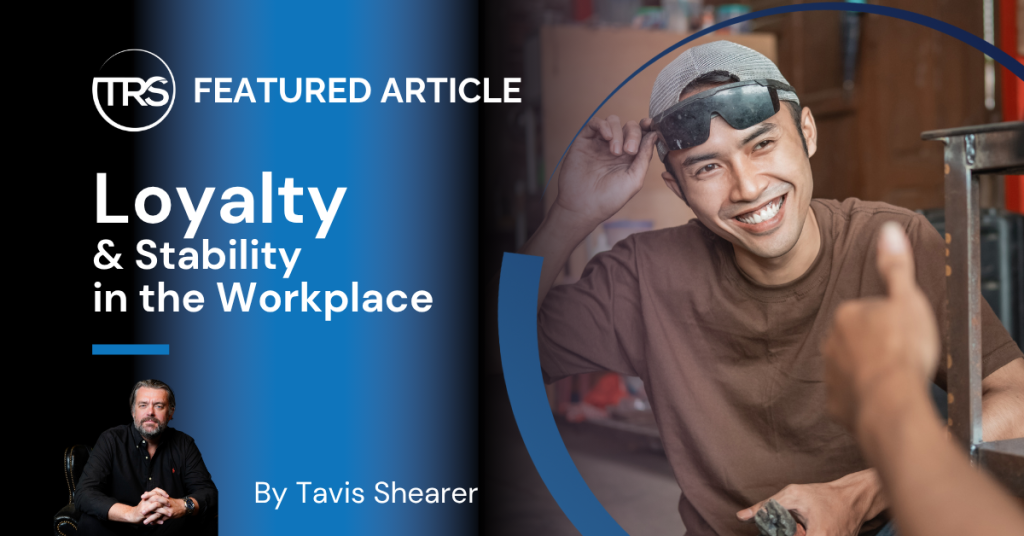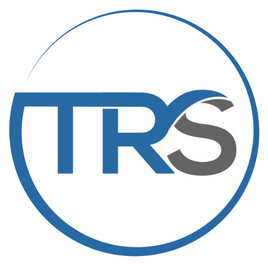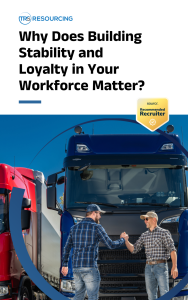Building Stability and Loyalty in Your Workforce
How you build stability and loyalty in your workforce is fundamental. At the end of the day, staff return drains money, productivity, and morale. Companies that prioritise loyalty keep good people longer, and create environments where employees want to work. And trust me, this is where specialised recruitment and strong leadership make all the difference….

Why Building Stability and Loyalty in Your Workforce Matters
Let’s call it straight: high turnover kills business growth. Recruitment costs go nuts, projects slow down. But when you invest in loyalty, you get the opposite: consistency, knowledge retention, and an investment. And of course, staff who feel part of the bigger picture. Genuine communication, trust, and the right fit from the start is the key.
Stability and loyalty matter because they:
- Reduce the hidden costs of rehiring and retraining.
- Strengthen client relationships with consistent service.
- Build a positive culture where people support one another.
- Increase productivity by keeping skilled employees engaged.
At the end of the day, loyalty won’t exist in a workplace where staff feel like a disposable asset. Here’s what I see trip businesses up:
- Hiring on speed, not fit, rushing a placement without considering long-term culture.
- Poor communication, staff left in the dark feel undervalued.
- Lack of recognition, people will move on if their work isn’t appreciated.
Building Stability and Loyalty Starts with Recruitment
This is where recruitment plays a huge role. If you want a loyal workforce, you’ve got to get the right people in from day one.
- Specialised recruiters know how to look beyond a CV and find candidates who match your culture as well as the skill requirements.
- Honest conversations upfront help align expectations between employer and employee.
- Tailored placements reduce the risk of churn by matching candidates who are in it for the long haul.
Think about it: hire wrong, and you’re back to square one in six months. Hire right, and you build a workforce that stays around for the long haul.
Practical Ways to Build Stability and Loyalty
Okay, so how do you actually make this happen?
- Communicate openly. Employees want to be heard, understood, and respected.
- Invest in development. Show staff you value their growth with training and mentorship.
- Recognise contribution Loyalty grows when people feel valued for their efforts.
- Support balance. A flexible approach to work keeps people committed long term.
- Lead with trust. Micromanagement kills loyalty; autonomy builds it.
It’s not about doing everything perfectly; it’s about doing the right things consistently.
Retention improves when employers provide ongoing upskilling and safety investment. Workers know the business has their back and the loyalty grows when managers set clear career pathways and follow through with development opportunities.
Why Loyalty Is the Long-Term Advantage
Stability comes from clear communication and structured shifts that respect personal life balance.
“Stability creates momentum, and momentum drives growth!”
At the end of the day, guys, if you want loyalty, you’ve got to invest in people, not just hire them.
FAQs: Building Stability and Loyalty in Your Workforce
1. Why is building stability and loyalty in your workforce important?
Because it reduces turnover costs, builds trust, and drives long-term business success.
2. How do you create loyalty in employees?
By communicating openly, recognising their work, supporting growth, and building trust.
4. Can recruitment improve workforce loyalty?
Yes! Specialised recruiters match the right people to the right culture, reducing turnover.
5. What’s the quickest way to start building loyalty?
Listen to your staff, act on feedback, and show them they’re valued.
Building stability and loyalty in your workforce is about more than just filling roles; it’s about creating an environment where people want to stay.
Businesses that focus on communication, recognition and development see lower turnover, stronger employee performance, and long term business growth. At the end of the day, loyalty comes from treating staff as partners, not transactions.
Why Smaller, Specialised Recruitment Agencies Outperform the Big Names

